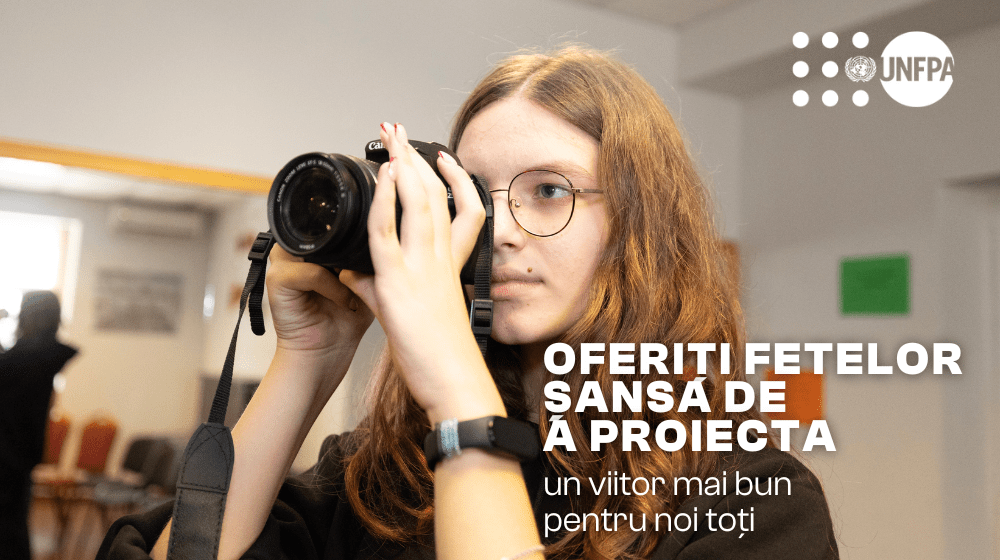"Adolescent girls have a vision for a better future. Let’s stand with them, not in their way," said Dr. Natalia Kanem, UNFPA Executive Director, in her statement for International Day of the Girl Child, celebrated annually on October 11th.
Girls' Day was adopted by the UN General Assembly in 2011 to promote gender equality and equal opportunities for girls worldwide.
In the Republic of Moldova, 80% of teenage pregnancies occur among girls from rural and vulnerable communities, often as a result of sexual violence. Additionally, girls from vulnerable backgrounds face difficulties in managing menstruation and contraception, usually having to improvise menstrual hygiene products from old textiles or using dangerous methods to prevent pregnancy.
UNFPA Moldova, in partnership with the Ministry of Education and Research and other partners, runs several programs that support the harmonious development of adolescent girls in a safe and supportive environment.
In 2023, UNFPA launched and piloted the "EduLIFE School" Program in four schools, providing students with access to sexual and reproductive health education and offering girls free menstrual hygiene products. As a result, in just three months since the installation of menstrual hygiene product dispensers, the percentage of girls who missed school due to menstruation-related reasons significantly dropped in these schools (from 55% to 12.5%).
In 2024, over 130 schools across the country will be equipped with dispensers offering free sanitary pads to female students throughout the school year.
Girls in our country also have access to personal development and participation programs at 67 Youth Centers operating nationwide. Approximately 40,000 girls attended the Youth Centers in 2023, participating in activities focused on life skills development, vocational guidance, economic empowerment, and volunteering.
In her statement, Dr. Natalia Kanem reiterated the importance of adolescent girls having access to education, sexual and reproductive health services, protection from violence, and opportunities to develop their skills and confidence. "When adolescent girls are healthy, educated, and empowered with skills and opportunities to shape a bright future, they and their children—if they choose to have them in adulthood—have greater chances at a better life."


